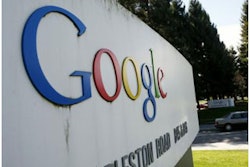CHEVY CHASE, Md. (AP) — So what's Seth Goldman, co-founder of Honest Tea and Bethesda dad, been doing since he sold his organic beverage company to Coca-Cola for a fortune two years ago?
He still bikes to work in downtown Bethesda and plays Frisbee in the local public park with his boys. Goldman has stayed on as chief executive of Honest Tea, and the company soon plans to expand into healthful food. He also has become a guru for socially conscious entrepreneurs aiming to change the way America eats.
"I'm not a foodie. I'm an activist," Goldman says.
"Oh, definitely!" his wife of 23 years chimes in as she mixes up a batch of chocolate banana smoothies in the kitchen of their Chevy Chase home, the same kitchen where, 15 years ago, Goldman first started brewing the tea that became a national brand and that President Obama stocks by the case.
"It's obscene," he says, quoting a U.N. report that ranks the United States, the wealthiest country in the world, 40th in life expectancy. "It's haunting. Health and diet is the lead factor. ... If I can help change that, that's a pretty powerful role."
When he started out, he personally peddled his drinks made with natural ingredients, handing out samples at Whole Foods stores in Rockville and Tenleytown and all over the Mid-Atlantic region. These days his sales pitches are not to moms and dads pushing shopping carts but to the owners of national restaurant chains.
This week, Goldman starts a national speaking tour to promote his new book, "Mission in a Bottle." Written with his Honest Tea co-founder and former Yale business school professor Barry Nalebuff, the book is an easy-to-read guide for startup entrepreneurs.
It outlines, with illustrations, a decade-long odyssey from five thermoses of home-brewed tea to a company in which Coca-Cola bought a 40 percent stake in 2008, eventually earning Goldman tens of millions of dollars.
It all started, he says, "because I was thirsty and couldn't find anything I wanted to drink."
Goldman, 48, is quiet, disciplined and competitive. He ran track for Harvard as an undergraduate and competes in triathlons with his three boys, ages 16, 19 and 21. He is getting ready to run next month in the Ragnar, a 210-mile team relay race from Cumberland, Md., to National Harbor.
When I heard he just turned 48, I asked him what he did to celebrate his birthday.
"I played three sets of tennis and swam," he says, his face brightening like a little kid. "For me it's a sanity check and a sleep enabler. If I don't exercise, I am up at 3 a.m."
Since he and his wife, Julie Farkas, bought their New Orleans-style home on a quiet bend of Chevy Chase Boulevard for $437,500 in 1995, they have installed just about every environmentally friendly gizmo going. Geothermal cooling and heating. Solar panels. A kitchen island made of recycled glass and concrete.
Goldman not only bikes everywhere but also bought 550 bikes for his employees. He doesn't just recycle but also spearheaded the effort to get recycling bins all over downtown Bethesda. He co-founded a business incubator called Bethesda Green, which aims to foster companies "that improve our environment and promote energy efficiency."
Does this guy have any bad habits?
"He's a little too pure for my taste," jokes his friend Gary Hirshberg. And this from the chairman of Stonyfield Farms, the organic yogurt company. "He is also a vegetarian, and he doesn't drink alcohol."
Hirshberg said his nephew, founder of the Peak Organic beer company, wanted Goldman to be on the board, but he declined since he doesn't drink beer.
Given Goldman's purist streak, many have questioned his alliance with Coca-Cola, the world's largest beverage company, known for sugary drinks and no favorite of the organic-food set.
"Coke is an interesting partner (for Goldman to have). There are trade-offs," Hirshberg says. "But being inside Coke advocating for less sugar and more organic ingredients is a way to effect change."
Goldman says Coke's ownership has vastly extended Honest Tea's reach; instead of being stocked in 15,000 stores, his beverages are now in 100,000. "If we can be in the vanguard of the world's largest beverage company, changing their offerings and changing how they interact with their environment," he says, he can have an impact. Honest Tea is buying 5 million pounds of organic ingredients a year, from tea from India to peppermint plants from the United States, supporting organic farmers worldwide.
Of course, there can be some tension, as when Coca-Cola recently campaigned against a measure in California to force companies to label genetically modified ingredients. Honest Tea favors transparency in labeling.
Goldman says that "after internal discussions," Coca-Cola will not be directly lobbying against a similar effort in the state of Washington, although it is a funder of trade associations arguing against the labeling.
Goldman, the son of Marshall Goldman, a scholar who specialized in the Soviet Union, says the world seemed more black and white when he was growing up during the Cold War era. "Today it's a lot more complicated," he says.
For example, his company is committed to sustainability but also produces hundreds of millions of individual packages that are usually not recycled. Still, when Honest Tea started a drive to get kids to recycle their drink pouches and raised money for charity while doing it, other big companies joined in.
He says the commercial success of Honest Tea and Honest Kids fruit-drink pouches has helped to create a ripple effect in the market that nudged other beverage makers such as Capri Sun to lower the amount of sugar in their drinks.
"He sees part of his role on the planet to effect positive change," says Shazi Visram, the founder and chief executive of Happy Family, a fast-growing company that makes organic baby food and other products. She called Goldman a role model.
Ethan Brown, a Sidwell Friends graduate now in Los Angeles who founded Beyond Meat, a vegan food company, says Goldman thinks big: "Seth is on a mission to democratize organics, make it something that is not just for East Hampton and the Vineyard, but Brooklyn and downtown Atlanta."
Hirshberg, the Stonyfield Farms chairman who is a leading advocate for the labeling of genetically modified ingredients and who has been mentioned as a potential gubernatorial candidate in New Hampshire, says he — like Goldman — "would both tell you we are in politics."
"Traditional elected office is one way to go," Hirshberg says. "This is another way. Citizens vote every time they shop."
What's next? Goldman says he has thought about politics. He majored in government at college and has worked on campaigns. He says that if someone told him 20 years ago that today he would be supporting fair-labor practices and "eliminating billions of calories from the American diet," he says he would have figured it would be from a perch in government.
He stands in his kitchen, sipping a bottle of his lemon-basil tea. "Politics," he says, "isn't the only way" to be a "change agent."
___
Information from: The Washington Post, http://www.washingtonpost.com






















